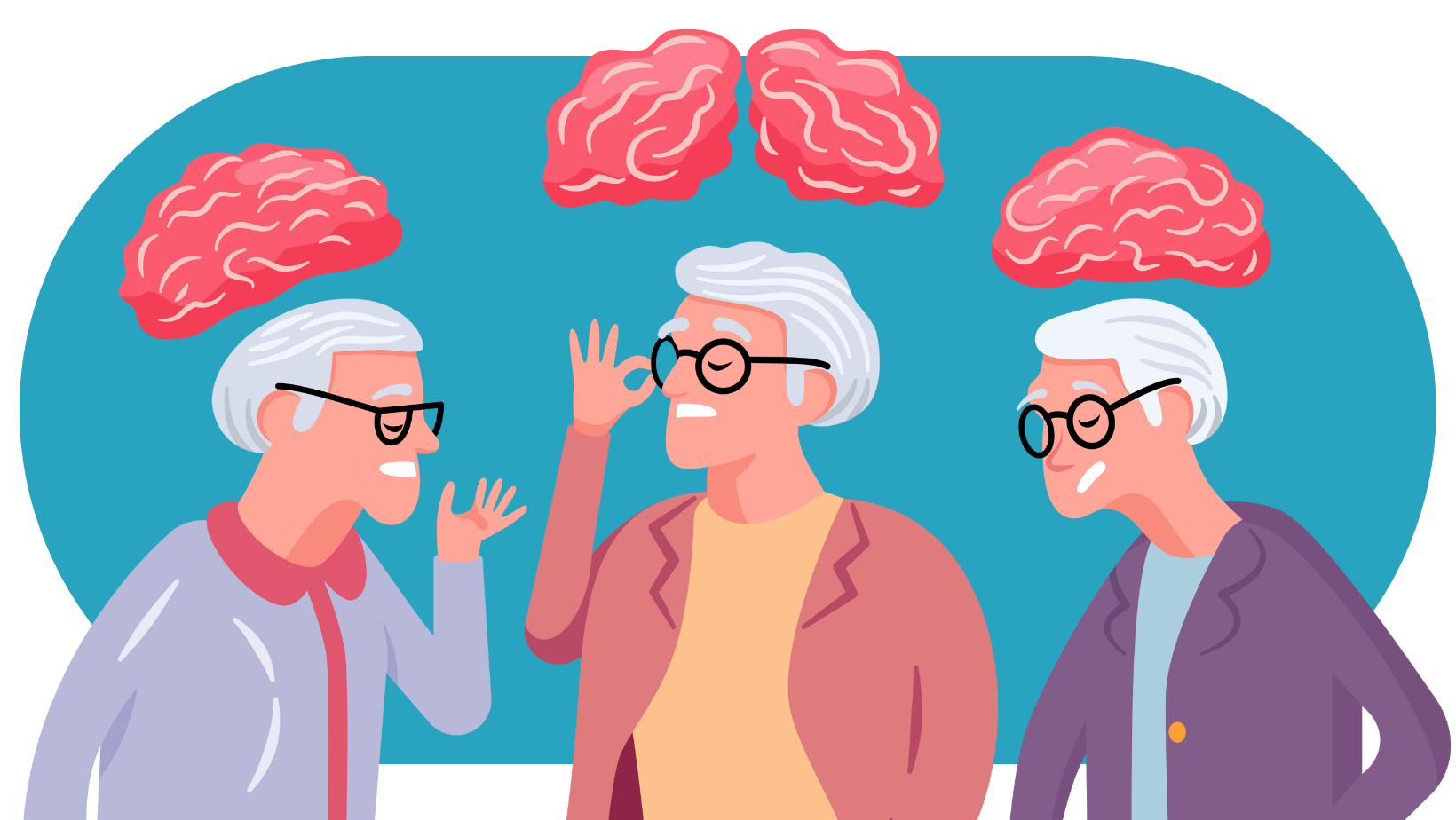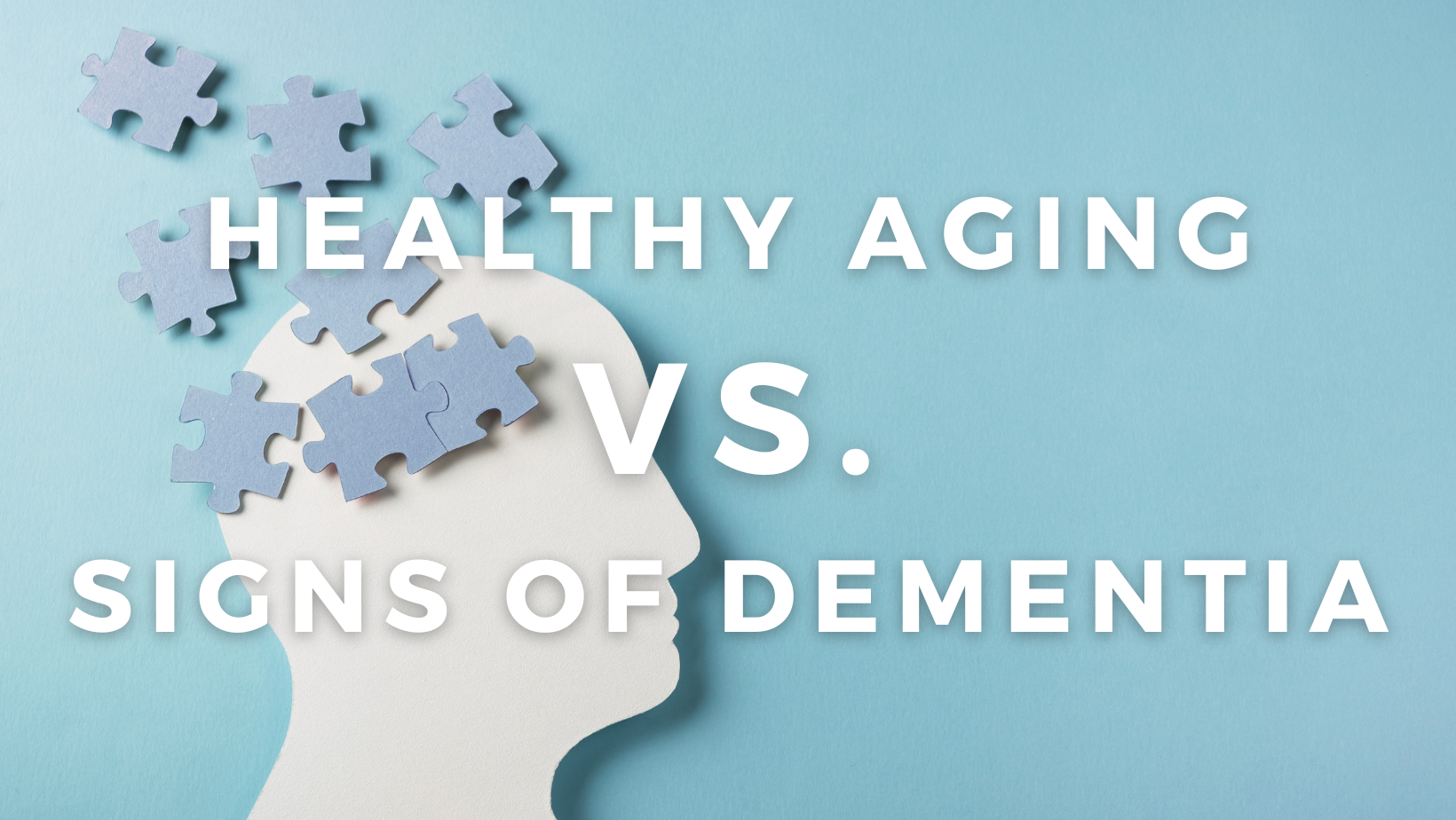Aging – it’s happening to all of us. As we grow older with time, so do our bodies and minds. While many of these changes are perfectly natural, some new occurrences in your life might have you questioning whether or not you could be at a higher risk for developing Alzheimer’s disease or other related dementias. While the symptoms of dementia sit on a spectrum and may vary significantly from one person to the next, there are some common signs to note that might help determine if it is time for you or your loved one to seek a formal medical evaluation.
How To Tell The Difference Between Healthy Aging and Signs Of Dementia

According to the Alzheimer Society, almost 40% of us will experience some form of memory loss after turning 65 years old. However, this instance of memory loss may be mild enough that we can still live our day-to-day lives without interruption. The Alzheimer Society notes that these interruptions within our daily lives may be the key to identifying early symptoms of dementia versus normal aging patterns.
Here are some of the examples listed by the Alzheimer’s Society as intended to help compare the difference between memory loss associated with healthy aging versus possible dementia onset and progression:
Memory Loss In Healthy Aging
- You’re unable to remember details of a conversation or event that took place a year ago.
- You’re unable to remember the name of an acquaintance.
- You forget things and events occasionally.
- You occasionally have difficulty finding words.
- You are worried about your memory, but your friends and relatives are not.
Memory Loss In Dementia
- You’re unable to recall details of recent events or conversations.
- You’re unable to recognize or know the names of family members.
- You forget things or events more frequently.
- You have frequent pauses and substitutions when finding words.
- Your friends and relatives are worried about your memory, but you are not aware of any problems.
Early Diagnosis Is Key To A Healthy Life With Dementia
Being told that you or a loved one has dementia is never easy. But, the earlier a dementia diagnosis is received, the sooner you and your loved ones can receive dementia-specific education, services, and support.
Start the process by first seeking a medical evaluation from your primary care physician. Your doctor may use a number of tools and assessments to help determine whether dementia might be a risk factor associated with the symptoms you or your loved one may be experiencing. Depending on the results of these assessments, your doctor may choose to refer you for additional tests, such as medical imaging, or seek an additional consult from a specialist, like a neurologist. Each of these steps will help your doctor form a cohesive diagnosis and formulate a treatment plan moving forward that is best for your and your family’s needs.
Did You Know?
Oakwood Creative Care is bringing back the JOY in aging! We believe a diagnosis should not have to define your life. Instead, we have devoted our mission to reigniting hope for caregivers and older adults with Alzheimer’s, dementia, and other age-related challenges. Click the button below to learn more about how we do this through our research-based, cutting-edge, creative care model found at each of our Day Clubs.





